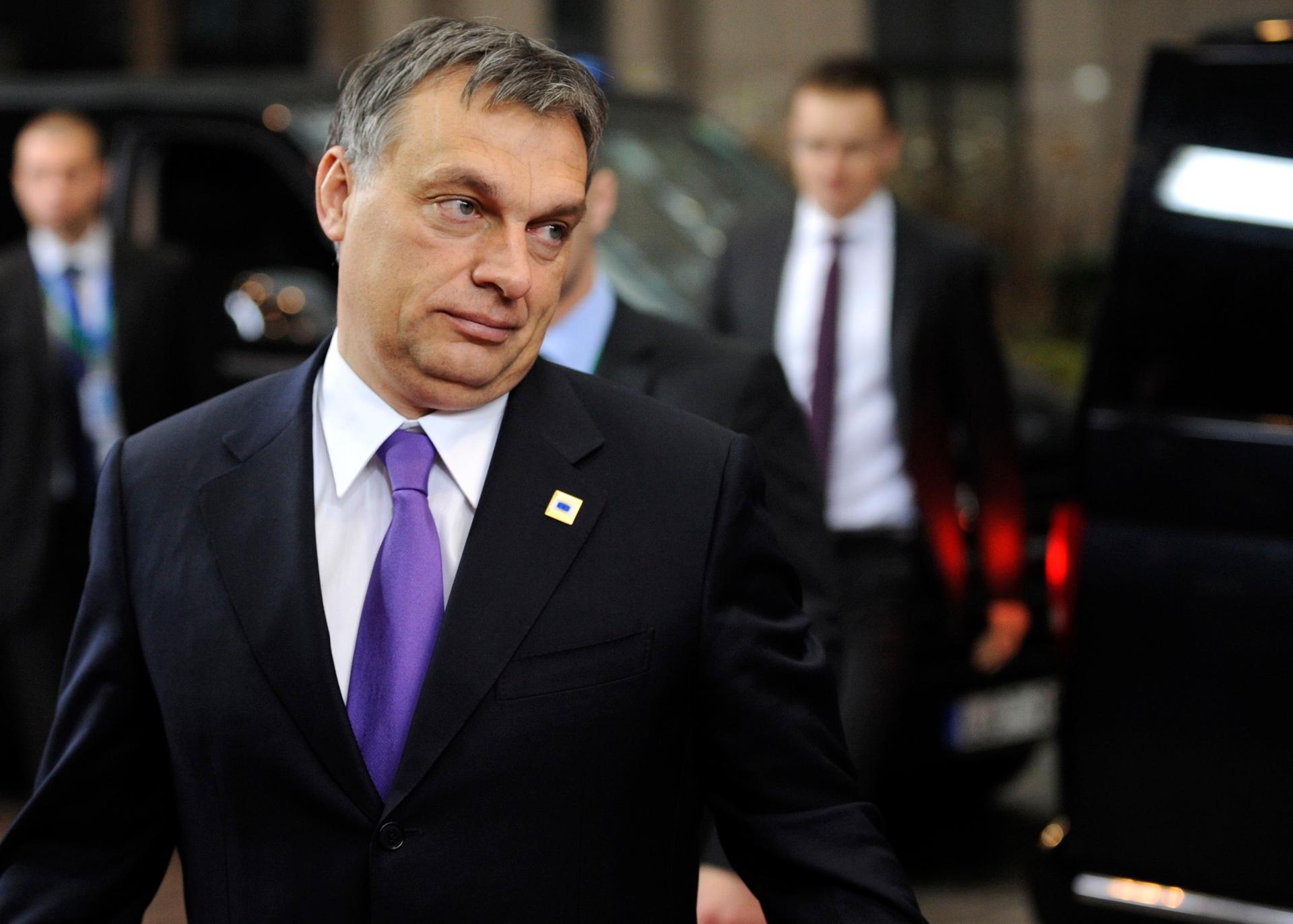EU freezes Hungary aid over budget deficit
Analysts say the EU wants to make an example of Hungary after Prime Minister Viktor Orban (pictured) cast aside warnings from Brussels and pushed Europe’s highest banking tax, a new central bank law, and other controversial policies through parliament.
The European Union has suspended €495 million ($655 million) of aid due next year to Hungary over the country’s failure to cut its budget deficit.
It is the first time Brussels has taken action over a member state’s failure to keep its budget in check, although the EU is to allow Hungary three months to pass further cuts and will review the decision in June, meaning Budapest might escape sanctions.
Tuesday’s decision was made during European finance ministers’ regular Ecofin meeting in Brussels, following a recommendation by the Union’s executive arm, the European Commission, that Hungary be subjected to an excessive deficit procedure, according to The Wall Street Journal.
More from GlobalPost: EU ups the ante in battle with bad boy Hungary
Responding to the move, which puts pressure on Budapest as it struggles to win EU and IMF funding to prop its weak forint currency, Hungarian Economy Minister Gyorgy Matolcsy said he was confident the country would meet the targets required to reverse today’s decision on time:
“We’re 100 percent confident that the final decision will lift the cohesion fund suspension, and fully convinced that we’ll meet the June targets,” he said.
More from GlobalPost: EU launches legal action against Hungary over democracy concerns
Under the EU’s Excessive Deficit Procedure rules, member states must keep their budget deficits below 3 percent of gross domestic product (GDP), and maintain government debts below or close to 60 percent of GDP.
Hungary is predicted to run a deficit of 3 percent this year and 3.6 percent near year, with its total debt standing at 82 percent of its output, according to the BBC. Although 23 of the EU’s 27 members have failed to respect the 3 percent deficit ceiling in the past, Hungary is the first to face the freezing of funds.
Tuesday’s decision came a day after the EU permitted Spain to run a higher deficit of 5.3 percent of GDP this year, leading Austria to accuse the EU of double standards.
Analysts say the EU wants to make an example of Hungary after Prime Minister Viktor Orban cast aside warnings from Brussels and pushed Europe’s highest banking tax, a new central bank law, and other controversial policies through parliament, according to Reuters.
More from GlobalPost: Chinese cars, made in Bulgaria
Every day, reporters and producers at The World are hard at work bringing you human-centered news from across the globe. But we can’t do it without you. We need your support to ensure we can continue this work for another year.
Make a gift today, and you’ll help us unlock a matching gift of $67,000!
